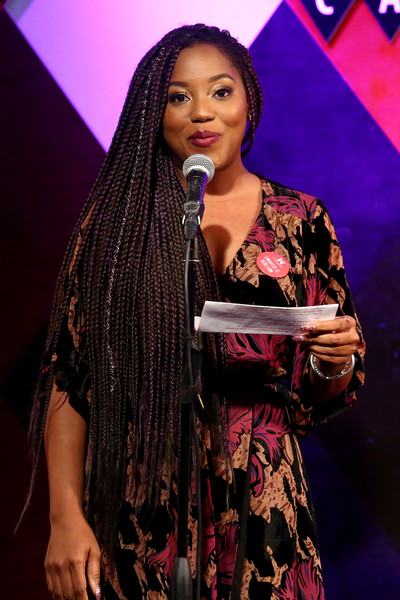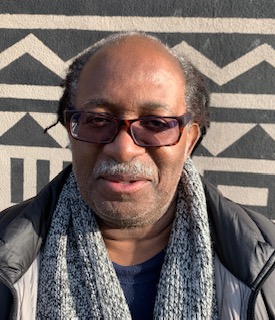|
Getting your Trinity Audio player ready...
|
Reading Time 4 mins
A new voice from the ‘margins’ challenges the narratives about gender, color, and power.
___________________________________________________________________
By LENNEL A. GEORGE
What is poetry? In an essay, Poetry is Not a Luxury, Audre Lorde discusses poetry as a mode of communicating and accessing our emotions. She writes that for women of color poetry is necessary for survival and provides new ways of being and striving for justice in the world.

By Camonghne Felix
72 pp. Haymarket Books. $16
ISBN: 9781608466115
Camonghne Felix, in her powerful debut collection, Build Yourself A Boat, provides us with a collection of poems that do exactly that. Her poems are taut, tender, and often gripping and traumatic.
They tell the story of a young woman recognizing her strengths and her vulnerabilities and at the same time rebelling against how the world views her feminine body as an object of desire and violence. There are no luxuries here; instead, she questions the racism inherent in the justice system in the Zimmerman poems; she confronts a painful childhood experience in a unique storytelling manner through a series of footnotes and throughout the collection, she is accessing and giving voice to emotions of anger, fear, and love as a means of challenging the dominant narratives about gender, color, and power.
One of the two epigraphs to the book is a quote from the singer, Solange
Knowles: “I’m going to look for my body, yeah-I’ll be back like real soon….”
This quote is an apt introduction to what follows as Felix, like Solange, goes on a journey “to confront the things (she is) most afraid of” as Solange says in an interview about the making of her album When I Get Home.
In poems like “Trap Queen”, “Lost Poems 4: RX” and “Contouring the
Flattening” the poet examines what it is to be black, female and poor.
In the “Lost Poem 4: RX” the speaker talks of “… the power/Of being a body
within a body/Of jewels”, of being trapped and dealing with trauma so that when she appears at a hospital, “the psy on duty in triage/Ask me if I want to die.” Her ironic response, is “Not at the moment, no but stay/Tuned.”

In another poem, “Contouring the Flattening” the narrator gives shape and
form to her story and to the deprivation and poverty that she lives in, even as she claims to “try not to tell the stories/ still bleeding. After all, who wishes / to lead their own mother to the wolves.”
She writes of living conditions:
I would tell of the mice that sometimes bit
us in our sleep, how the infestation of them
violated any concept of domain-how we could not know who the house really belonged to; a house of rodents, or of menDespite the hardships, the speaker’s grit, determination and resilience
breaks through at the end of the poem when she says: ” …. I keep my/
smile white and my fists closed. I let survival be/ survival. I grow into the shoe…”
“Trap Queen” with its hip hop and jazzed up rhythms begins with the young woman proclaiming her identity-sexuality that both defines her and entraps her in the gaze of men.
I’m your Trap queen
In these shorts, I’m all ass.
My clap don’t quiet. My tongue don’t lie.
“In these shorts, I’m just glitchy melanin”.
And what bothers and troubles her is how “…. everybody lay claim when
the sun falls, except / for how I can’t keep a moment of myself to/ myself.”
She goes on to reflect on how the world uses and abuses her and only
acknowledges or notice her in death- but quickly moves on to repeat the
the cycle of oppression and abuse:
all my powers sustains and sanctifies,
the way the world will lay
it’s violence at the threat
of my able black body.except the way nobody
got my back until i’m face forward
an obituary or
red prayer orbiting until
everybody forget about it
& find my sister & repeat.
This debut collection is a work of lyric activism and experimentation of
poetic storytelling. In a series of poems on Trayvon Martin, titled
“Zimmerman Testimonies:” the speaker takes us into the courtroom to
bear witness to a mother’s anguish and the injustice of the legal system:
….and in the courtroom, the prosecutor taps play on the
tape, Trayvon’s wet scream the only thing living a full life
and his mother, a mare overwrought with the front seatof her sons’ slaughter, chases the
breath out of the courtroom, the big door whipping
behind her, running and running
every day of this trial he dies
In a series of footnotes that are scattered throughout the book the author
references an experience of near-rape and drowning that lies buried, like
the footnotes, in the psyche of the speaker. It is not until the last piece of the collection, in a letter to herself disguised as a letter from her Mom that we learn the full story of what happened. Some of these eleven footnotes
appear in a sequence of poems, “Cutting with JB” about two teenager high
school girls who “spend their days in patient wanderlust. living off sheer/
probability in a series of cheap rancid thrills.” In another poem, “GOOGLE
SEARCH KEYWORDS:”, when we encounter one of these footnotes (” 2
Anyways, I always kept telling you all that I can’t swim.”) the speaker in a
staccato, disjointed stream of consciousness brainstorming is literally
searching and trying to give voice to something buried:
incest; what; is
what; is; molest
what; is; rape
kid; raping; kid
As readers, we look to discern meaning in these footnotes. What do they
signify to the poems that they are embedded in? Why are they there? What purposes do these footnotes serve other than to signify that there are threads that run through our existence and underpin everything that we do in some shape or form? These connected footnotes weave into a narrative that moves from loss, silence, and pain to one of retrieval and empowerment.
Camonghne Felix in this short but powerful and audacious collection gives voice to the nameless. Her poetry is more than just physical words but a deep mode of communicating and empowerment. Her poetry, as Lorde notes in her essay, Poetry is Not a Luxury, “formulate the implications of ourselves, what we feel within and dare make real (or bring into action into accordance with), our fears, our hopes, our most cherished terrors.”
_____________________________________________________________________

Lennel George, a retired NYC High School Principal who teaches at CW Post, Long Island, is a Kittitian with a deep interest in Caribbean Literature and has traveled extensively throughout the region, including Cuba.
